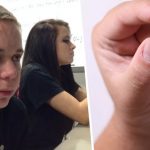A man who went missing in Texas had been eaten by his pack of dogs, according to officials.
Freddie Mack, who had not been since April, was devoured by his 18 mixed-breed dogs, leaving nothing but bone fragments of between two and five inches behind.
Medical examiners discovered the 57-year-old after DNA tests confirmed pieces of bone recovered from the dogs’ faeces belonged to Mr Mack.
As reported by Sky News, deputy Aaron Pitts from Johnson County Sheriff’s Office said:
Never have we ever, or anyone we’ve spoken to, heard of an entire human being consumed.
The bones were completely broken up and eaten.
It’s reported Mr Mack, who was said to be a bit of a recluse, already had serious health problems so it’s unclear whether the dogs had killed their owner or whether he died from his illness before being eaten.
Sheriff King Adam said:
Either way, it is a very gruesome event and we extend our sympathy to Freddie Mack’s family.
Mr Mack hadn’t been seen since mid-April, and a family member later reported him as missing to the authorities in May.

Officials found it difficult to search the man’s home because of the sheer number of aggressive dogs, however when they eventually managed to distract the pack and get into the house, there was no sign of the 57-year-old.
Police searched for days on end before investigators returned to comb the property and made a shocking discovery – the animal faeces contained bits of human hair, clothing and bone.
Larger bone fragments were tested at the University of North Texas Centre for Human Remains Identification, and DNA results revealed there was a match to Mr Mack.
Deputy Pitts confirmed two of the dogs were killed by their pack, 13 were put down because of their ‘aggressive nature’ and three were put up for adoption.
The dogs were said to be well-cared for and fed by Mr Mack before his death, with Pitts adding: ‘This man loved his animals.’
The sheriff’s office revealed they’d previously had a call from Mr Mack in 2017 while he was in hospital, asking if someone could check on his dogs.
Unilad





